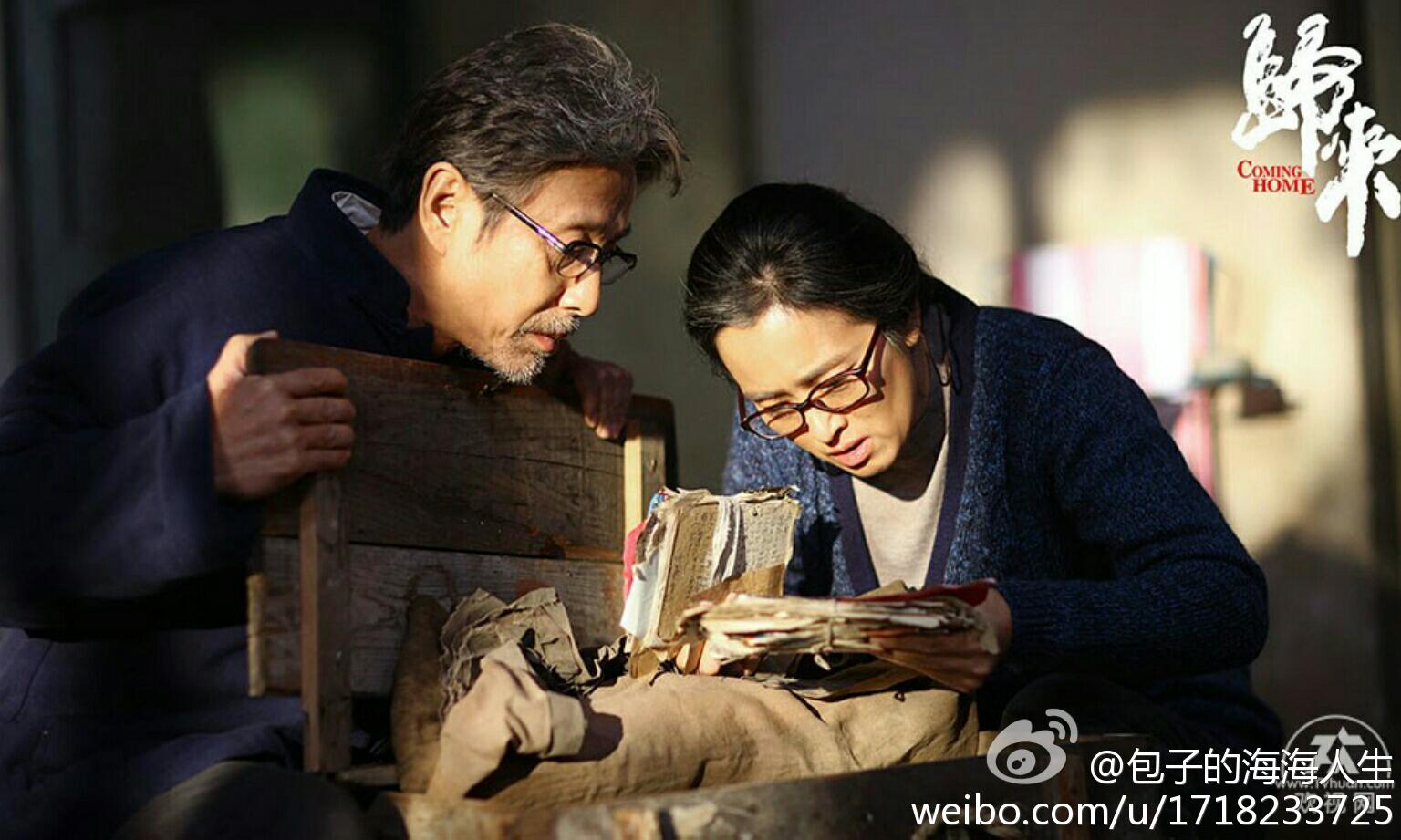Zhang Yimou, China’s preeminent auteur, may be known to the younger generation for his flamboyant color scheme and kinetic action choreography as seen in his wuxia films (Hero, House of the Flying Daggers) and his earlier arthouse forays (Raise the Red Lantern). But Zhang elects to strip away his flash in favor of a character-driven narrative in Coming Home, the latest entry to his well-regarded oeuvre.
Mostly set during the Cultural Revolution, Coming Home focuses on the family of Lu Yanshi (played by Chen Daoming), a “rightist” dissident who attempts to escape a labor camp and return to his wife, Feng Wanyu (Gong Li) and daughter, Dandan (Zhang Huiwen). Although initially unsuccessful, Lu is eventually released by the government, only to return home to an amnesiac Feng and a downhearted Dandan.
While the film may seem to lean close to political commentary due to its setting, Zhang chooses to focus instead on the microcosmic saga of Lu’s family, which is divided into three acts. The first act culminates in a doomed meeting between Lu and Feng in a tense train station chase that shows shades of Zhang’s more famous works. Quite instantly after this scene, Coming Home settles on a more somber pace, giving attention to Lu’s attempts to reconnect with Dandan and Feng.
The second and third act showcase the spectacular talent assembled for this film. Gong Li once again proves why she is among the most seminal actresses in Asian history with her portrayal of Feng. Gong manages to vanish into the role impeccably, portraying a wife longing for his husband’s return with verve. Meanwhile, Chen Daoming holds his own as a capable sparring partner of Gong Li. From each erstwhile attempt to get close to Gong’s Feng, whether as a piano-tuner or as her letter-reader, Chen turns in a tender yet heartbreaking depiction of a man merely wanting to make her wife remember again.
But the real revelation in this film comes in Zhang Huiwen as Dandan. Her luminous, youthful face at the start of the film provides a perfect contrast to her naïve, brattish attitude towards Feng, her mother. Her dance sequences display a marked intensity rare in similar talents of her age. As tragic as Lu and Feng’s characters’ arc are, Dandan’s arc is just as similarly despondent. Her self-serving pursuit to get the lead for the propagandist opera, The Red Detachment of Women, generates the miserable takedown of Lu at the stated train station scene and the amnesia of Feng.
What is most impressive in Zhang’s performance is during the succeeding acts, in which she adeptly plays a repentant adult still scarred by her past; a clear contrast from her character’s role in the first act. Halfway into the film, she is coldly rebuked by Feng for cutting out Lu out of their family pictures in an attempt to make her mother forget him. Instead of going for broke like a standard award-baiting actor, she delays for the tension to peak before uttering her stifled frustration. “She forgets everything, but remembers all my faults”, her character Dandan weeps after her mother swore no forgiveness for her actions. And in that moment, a star is born in Zhang Huiwen.
Coming Home is also immensely assisted by its longtime Zhang Yimou collaborator Zhao Xiaoding’s cinematography, achieving verisimilitude in reimagining 1970s China with just the right hint of nostalgia. Chen Qigang’s music may be mawkish at times, but it richly complements the emotional sequences late in the film.
As stated earlier, the political commentary expected of a film set around the Cultural Revolution is shunted here at Coming Home but for the purpose of a more universal theme, namely centering on Gong Li’s character, Feng. As stated earlier, she is suffering from amnesia, and while this may be considered too syrupy by some viewers, this is a necessary element of the story as it serves as the film’s cipher to a human experience; we may need to forget in order to move forward, even if it means forgetting people we love.
While it does not showcase the trademark visual panache of renowned director Zhang Yimou, Coming Home is buoyed by stellar performances by its lead actors to deliver an exceptional emotional reflection on China’s recent past.
Written by Rainier David
Coming Home is one of several films that will be shown in the 10th Spring Film Festival, which will run from January 29 – February 7, 2016 at Shang Cineplex in the Shangri-La Plaza. For the full festival line-up, check out their Facebook page.
Also check out:
- Official Spring Film Festival Facebook page
- Cinema Bravo’s 10th Spring Film Festival Guide
- Click the City’s 10th Spring Film Festival Guide





Pingback: 10th Spring Film Festival Gala Night - Elements Magazine